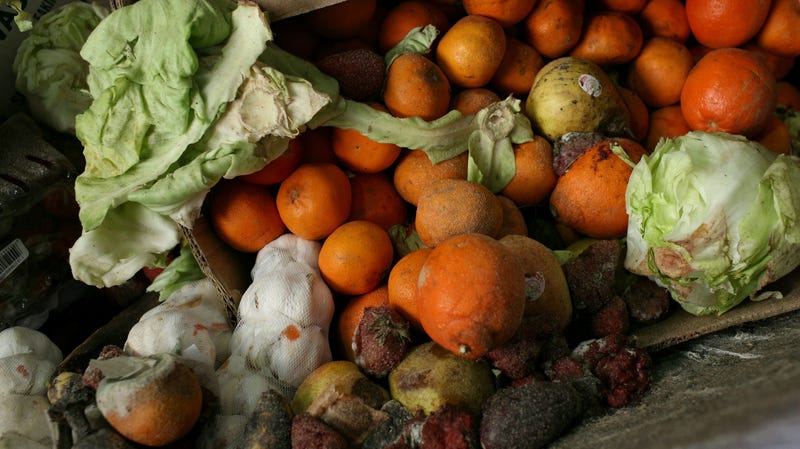In three weeks of eating a diet that was devised by scientists to sustain a planet with 10 billion humans, I’ve learned about my own relationship with food and the ups and downs of eating in 2050. This week, I looked in my fridge and realized there’s one thing I’ve really been struggling with.
Pushing aside the spinach, I gazed in shame at leftovers packed with the best of intentions but left to slowly wilt and transform inside mason jars and various other containers. I looked at the vegan nacho cheese (which you have to make even if you scoff at vegan anything) I was getting ready to add to the menagerie, and wondered if it would meet the same moldy fate. While eating what has been dubbed a planetary health plate diet has kept me focused on what’s on the plate, it’s also put the food that goes in the trash in sharp relief.
Food waste is a huge problem, and while it isn’t uniquely American, we do more of it than most countries. The Department of Agriculture estimated that waste makes up 30-40 percent of our food supply, while the Environmental Protection Agency estimated that “more food reached landfills and combustion facilities than any other single material in our everyday trash” in 2015. Research published earlier this yearshows that the average American wastes nearly a pound of food each day. At the same time, a shocking 40 million Americans lack food security.
There have been attempts to address parts of the food waste issue, from delivery services that send you ugly produce farmers would (in theory) otherwise throw out to city compost programs. But as Emily Atkin found for the New Republic, the former has proven a bit problematic. While the latter diverts waste from landfills where it can produce methane and instead puts it to good use, a better use would be getting that food to people who need it. Less food wasted would translate to farmers and ranchers growing less, reducing the need for water, land, and nutrients.
And it’s something not just the U.S., but the entire world needs to work on. The EAT-Lancet report outlining the planetary health diet I’ve been test-driving shows that halving food waste is the single biggest action that would help reduce fertilizer applications globally. Cutting waste alone would also get agricultural water use back to a sustainable level, and it would help reduce agricultural land use and greenhouse gas emissions a bit. (Other strategies, like shifting the world’s diet, are more effective in those regards.)
In a brief on the EAT-Lancet report, the commission behind it suggests packing up leftovers for lunch, or finding creative uses for them. I’ve been doing the former, but my creative use of turning the back of my fridge into a science experiment probably isn’t what the report authors had in mind. The brief also suggests making a meal plan, which I usually do when I’m not feeling lazy (see Exhibit A below).






No comments:
Post a Comment